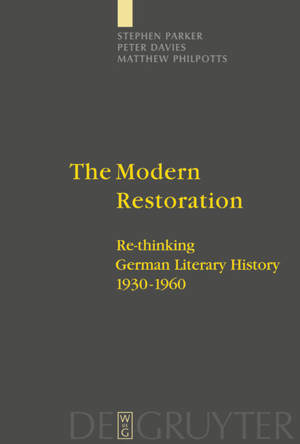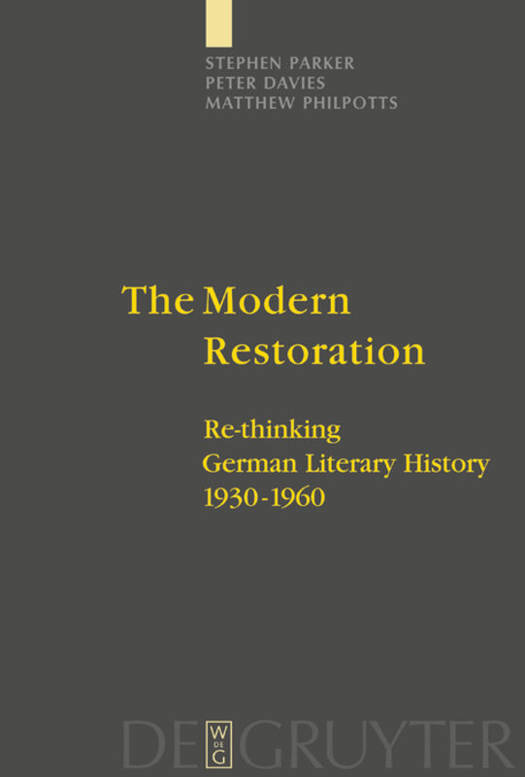
- Afhalen na 1 uur in een winkel met voorraad
- Gratis thuislevering in België vanaf € 30
- Ruim aanbod met 7 miljoen producten
- Afhalen na 1 uur in een winkel met voorraad
- Gratis thuislevering in België vanaf € 30
- Ruim aanbod met 7 miljoen producten
The Modern Restoration
Re-Thinking German Literary History 1930-1960
Stephen Parker, Peter Davies, Matthew PhilpottsOmschrijving
This book seeks to move twentieth-century German literary history away from its stubbornly persistent reliance on the political turning-points of 1933 and 1945. In the first part of the book, the authors analyze a synchronic corpus of literary journals, identifying a restorative aesthetic mood in the years 1930-1960 which persists across political date boundaries. In the second part, the careers of five writers are considered diachronically against this prevailing restorative climate: Gottfried Benn, Johannes R. Becher, Bertolt Brecht, Günter Eich, and Peter Huchel. Combining these two approaches, the authors show that a fresh perspective that challenges established literary-historical periodisations can shed light on the common cultural and aesthetic ground shared by writers, editors and critics across the ideological divides of the era.
Specificaties
Betrokkenen
- Auteur(s):
- Uitgeverij:
Inhoud
- Aantal bladzijden:
- 403
- Taal:
- Engels
Eigenschappen
- Productcode (EAN):
- 9783110181135
- Verschijningsdatum:
- 26/07/2004
- Uitvoering:
- Hardcover
- Formaat:
- Genaaid
- Afmetingen:
- 156 mm x 234 mm
- Gewicht:
- 743 g

Alleen bij Standaard Boekhandel
Beoordelingen
We publiceren alleen reviews die voldoen aan de voorwaarden voor reviews. Bekijk onze voorwaarden voor reviews.











